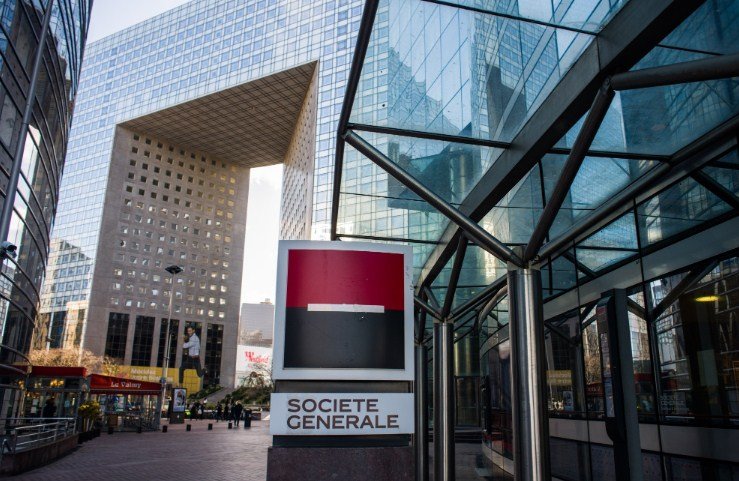Societe Generale, France’s third-largest listed bank, unveiled its new strategy plans on Monday, but failed to impress investors who were expecting more radical changes. The bank’s shares plunged by about 12% as its newly appointed CEO Slawomir Krupa announced modest revenue growth targets and a cautious outlook for the European banking sector.
SocGen faces a challenging environment
SocGen, which has been hit by the COVID-19 pandemic, low interest rates, and fierce competition, has been trying to revive its fortunes under Krupa, who took over as CEO in May. The bank has already sold some of its underperforming businesses, such as its Polish and Serbian units, and cut costs by reducing staff and branches.
However, investors were hoping for more ambitious moves from the new leader, such as a merger with another bank or a spin-off of some of its divisions. Instead, Krupa presented a conservative plan that focused on improving profitability and efficiency, while maintaining a diversified business model.
The bank said it aimed to increase its annual revenue by 1% to 2% over the next three years, and to achieve a return on tangible equity (ROTE) of 10% by 2025. It also pledged to distribute 50% of its net income to shareholders through dividends and share buybacks.
SocGen’s plan lacks vision and clarity
Analysts and investors were not impressed by SocGen’s plan, which they deemed lacklustre and vague. They questioned the bank’s ability to grow its revenue in a sluggish economy and a competitive market, and to achieve its profitability target without more drastic measures.
One analyst said that the plan lacked vision and clarity, and that it did not address the main challenges facing the bank, such as its low valuation, its exposure to volatile markets, and its dependence on interest rates. Another analyst said that the plan was too optimistic and did not provide enough details on how the bank would execute it.
Some investors also expressed disappointment that the bank did not announce any major strategic moves, such as a merger with another European lender or a spin-off of its retail or investment banking arms. They said that such moves could have boosted the bank’s valuation and created synergies.
SocGen reflects the malaise of European banks
SocGen’s poor performance on Monday reflected the broader malaise of European banks, which have been lagging behind their U.S. rivals for years. European banks face a challenging environment of low interest rates, weak economic growth, fragmented markets, strict regulations, and digital disruption.
A recent study by the European Central Bank (ECB) found that European banks suffered from lower profitability, higher costs, and weaker capital positions than U.S. banks. The study attributed this gap to U.S. banks’ dominance of global investment banking, as well as European banks’ burden of bad loans dating back to the global financial crisis.
European banks have also been slow to consolidate and restructure their businesses, unlike their U.S. counterparts. Although there have been some mergers in recent years, such as between Spain’s CaixaBank and Bankia, or Italy’s Intesa Sanpaolo and UBI Banca, they have been mostly domestic deals that have not created pan-European champions.
Moreover, European banks have been struggling to adapt to the digital transformation of the industry, which has been accelerated by the pandemic. They face increasing competition from fintech startups, online platforms, and big tech firms that offer cheaper and more convenient financial services to customers.

